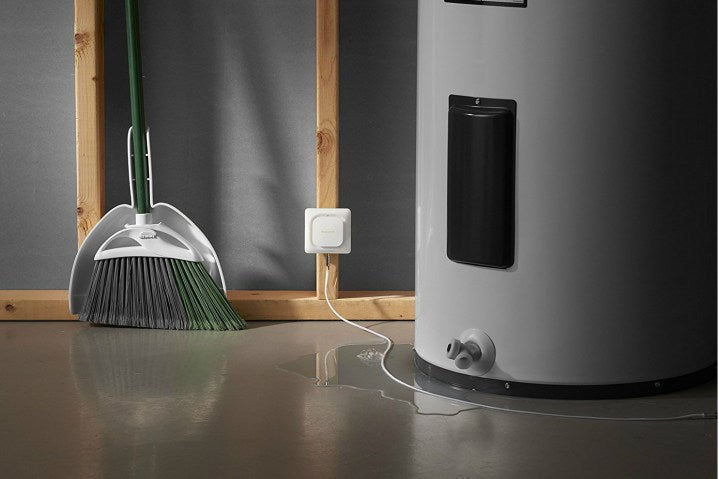
How Businesses Can Save Water: Strategies for a Sustainable Future
Share
In today's rapidly evolving technological landscape, where every drop counts, understanding how businesses can save water is not only a matter of environmental responsibility but also a strategic advantage. As water scarcity becomes an increasingly pressing global issue, tech professionals and enthusiasts are uniquely positioned to drive change by integrating innovative solutions into their operations. This article explores actionable strategies and cutting-edge technologies that empower businesses to conserve water effectively.

The Importance of Water Conservation in Business
Water is a finite resource, and its scarcity poses significant challenges to industries worldwide. In recent years, the demand for fresh water has surged, driven by population growth, urbanization, and industrial expansion. Consequently, businesses must adopt sustainable water management practices to ensure their long-term viability and reduce their environmental footprint.
Tech professionals and tech enthusiasts are at the forefront of this movement, leveraging their expertise to develop innovative solutions that address water conservation challenges. By embracing these approaches, businesses can not only reduce water consumption but also enhance their reputation and gain a competitive edge.
Advanced Technologies for Water Conservation
The integration of advanced technologies is revolutionizing how businesses approach water conservation. From smart irrigation systems to IoT-enabled sensors, these innovations provide real-time insights into water usage, allowing businesses to optimize their consumption patterns.
1. IoT and Smart Water Management
Internet of Things (IoT) technology is transforming water management by enabling businesses to monitor and control their water usage remotely. IoT sensors can detect leaks, measure flow rates, and provide data analytics to identify inefficiencies. By implementing IoT solutions, businesses can reduce water wastage and improve operational efficiency.
2. Rainwater Harvesting Systems
Rainwater harvesting is a sustainable practice that allows businesses to capture and store rainwater for non-potable uses such as landscape irrigation and cooling systems. By incorporating rainwater harvesting systems, businesses can reduce their dependence on municipal water supplies and lower their utility costs.
3. Water-Efficient Appliances and Fixtures
Upgrading to water-efficient appliances and fixtures is a straightforward yet effective way for businesses to conserve water. High-efficiency toilets, faucets, and dishwashers can significantly reduce water consumption, leading to cost savings and environmental benefits. For example, dual-flush toilets offer two flush options, allowing users to select the appropriate amount of water needed.
Implementing Sustainable Practices
Beyond technology, businesses can adopt various sustainable practices to further enhance their water conservation efforts. These practices not only contribute to environmental stewardship but also foster a culture of sustainability within the organization.
1. Employee Engagement and Education
Engaging employees in water conservation initiatives is crucial to achieving sustainable outcomes. By providing training and educational resources, businesses can empower their workforce to adopt eco-friendly practices both in the workplace and at home. Encouraging employees to identify and report leaks, for instance, can prevent water wastage and reduce operational costs.
2. Regular Maintenance and Inspections
Routine maintenance and inspections are essential for identifying leaks and inefficiencies in plumbing systems. By conducting regular checks, businesses can address issues promptly and avoid costly repairs. Implementing a proactive maintenance strategy not only conserves water but also extends the lifespan of infrastructure.
3. Collaboration with Suppliers and Partners
Businesses can enhance their water conservation efforts by collaborating with suppliers and partners who share similar sustainability goals. By working together, they can develop innovative solutions and share best practices to achieve mutual water-saving targets. This collaborative approach fosters a sense of community and collective responsibility towards water conservation.
Conclusion
As water scarcity continues to challenge industries worldwide, tech professionals and enthusiasts have a unique opportunity to lead the way in water conservation. By leveraging advanced technologies, implementing sustainable practices, and fostering a culture of environmental responsibility, businesses can make significant strides in reducing their water consumption. Embracing these strategies not only benefits the environment but also enhances business resilience and profitability. For more insights on sustainable water use and eco-friendly technologies, explore the latest posts on sustainable water use and eco-water filtration systems.

FAQs
1. What are the benefits of water conservation for businesses?
Water conservation reduces operational costs, enhances sustainability, and improves a business's reputation. It also mitigates the risks associated with water scarcity and regulatory compliance.
2. How can technology help in water conservation?
Technology enables real-time monitoring and control of water usage, identifies inefficiencies, and provides data-driven insights to optimize consumption patterns.
3. What role do employees play in water conservation?
Employees play a vital role by adopting eco-friendly practices, reporting leaks, and participating in conservation initiatives, thus contributing to a culture of sustainability within the organization.
